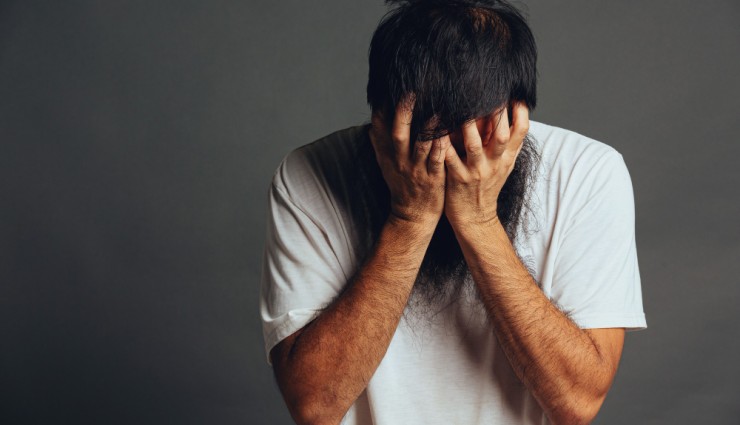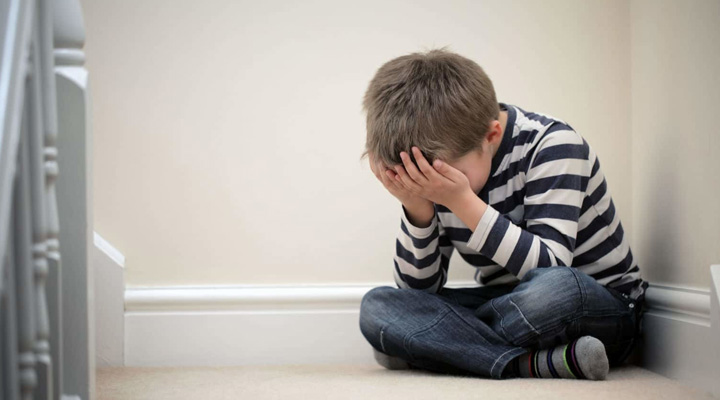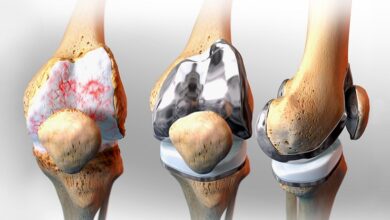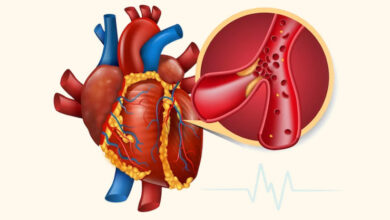What is trauma? Symptoms, steps, steps to improve

After a tragedy, it takes time to get over the grief and feel safe again. This sense of insecurity, combined with discouragement and isolation, results from mental trauma, which may result from an accident, rape, domestic violence, death, or various natural disasters. Join us to see what trauma means.
What is mental trauma?
Mental trauma is the result of stressful events that take away a person’s sense of security at the moment and make him feel helpless in such a way that the memory of that discomfort is forever tied to anxiety and pain in the person’s mind and depending on what happened, the seed of feelings such as discouragement and mistrust It grows in him.
The common denominator of most traumatic experiences is the threat of security. The more you feel fear and helplessness, the more intense the trauma and the more profound this wound will be.
Trauma may be caused by:
- Sudden events such as accidents, seizures, or unexpected violent attacks in childhood.
- Non-stop stress from living in an unsafe neighborhood, working in a stressful work environment, humiliation at work, fighting a severe illness, and domestic violence.
- Fatal blows include the death of a loved one, divorce, or betrayal of a romantic partner.
Not all of us have been victims of terrorist attacks, and we have not experienced unfortunate events such as plane crashes or assassination attempts. However, we see heartbreaking images of horrible natural and artificial disasters daily on social networks, read their details, and are exposed to collective trauma. The continuation of this news affects the nervous system of our brain and gradually causes traumatic stress in different situations.
Childhood trauma and its unpleasant consequences
We are all exposed to adversity, but some are more traumatized if they have experienced trauma before, especially in childhood. Childhood trauma results from anything that takes away security from a child. Issues such as:
- living in an unsafe and unstable environment;
- separation from parents;
- serious diseases;
- exhausting medical treatments;
- sexual, physical, or verbal abuse ;
- Domestic violence;
- Inattention and unkindness.
Childhood is a period of sweet experiences. The profound effect of the unpleasant events of this period remains in the unconscious for a long time, conveys fear and helplessness to adulthood, and provides the basis for subsequent injuries.
What are the symptoms of trauma in psychiatry?
No right or wrong behavior exists, and people react differently to trauma. One struggles with mental symptoms such as denial, disbelief, confusion, anger, anxiety, fear, guilt and shame, sadness, or despair and unconsciously withdraws from others. Another suffers from physical symptoms such as insomnia, nightmares, fatigue, difficulty concentrating, restless legs, palpitations, pain or muscle tension.
Stages of Trauma
After an unfortunate event, a person struggles with trauma symptoms for a few days to a few months to slowly feel that he is on the way to recovery. However, symptom relief does not mean trauma treatment. Sometimes, a person thinks that he has wholly passed that event. Still, in particular situations, for example, the anniversary of the same incident, everything that happened to him passes clearly before his eyes.
Find that the trauma symptoms do not improve over time, instead of getting worse and more intense than before. You may have post-traumatic stress disorder (PTSD). It means that your nervous system has been unable to process your emotions, and you are stuck in the mental shock of that incident.
When you go through a traumatic event, you must deal with insecurity afterward, at least briefly. When you lose a loved one, you must go through a mourning period to slowly deal with this grief and continue living even if the survivor’s guilt bothers you.
Necessary measures for trauma recovery
1. exercise
Trauma upsets the body’s natural balance and keeps it in a state of arousal and fear. Exercise reduces the intensity of this event to some extent and makes the body more free. Rhythmic sports that involve the hands and feet, such as walking, running, swimming, basketball, and even dancing, have the best results. When doing sports, instead of focusing on unpleasant thoughts, focus on your body and your movements. Sports like rock climbing, boxing, weight training, and martial arts focus on the mind.
2. Don’t be isolated.
Trauma makes people withdrawn and isolated, while being with people and making eye contact is one of the best ways to overcome trauma. You don’t have to talk about the injuries you’ve seen, but ask them to be by your side and convey the feeling of “acceptance” to you. Have someone who will listen to you without judgment and accompany you to normal activities you can handle, which have nothing to do with the past traumatic experience. By doing this, you practice living a routine.
Reconnect with old friends and rebuild relationships torn apart by trauma symptoms. You can join support groups, connect with others with a similar problem, and see how they coped with traumatic experiences.
3. Calm your nerves
Even when you are most agitated, anxious, and angry, you can change this arousal system and calm yourself down. A calm mind puts anxiety aside and takes control of the situation.
Try mindful breathing, which works wonders for dealing with confusion. You can try seeing new sights, smelling new smells, or tasting new tastes. Sometimes, stroking a baby or listening to a particular music can instantly relieve all anxiety.
Of course, the most important thing is to allow yourself to be anxious and worried! Recognize and accept your traumatic feelings whenever they take hold of you before you try to change them.
4. Take care of your health.
A healthy body has more power to deal with mental damage caused by trauma. So include enough sleep, a healthy and balanced diet, meditation, and relaxing exercises in your daily schedule, and stay miles away from alcohol and drugs. Relaxation techniques such as meditation, yoga, and activities that make your heart happy are more effective than a thousand types of pills and medicines.
Trauma treatment methods
The first step to getting out of the trap of trauma is to resolve unpleasant feelings and memories that you have long avoided facing. This suppressed energy is sometimes discharged through physical activities such as crying, shaking the head and body, or other ways. But sometimes, the situation is more complicated, and to evaluate them, you have to enter the process of cognitive behavioral therapy (CBT).
Eye Movement Desensitization and Reprocessing (EMDR) treatment also combines elements of cognitive behavioral therapy and desensitization with eye movements to reconstruct unpleasant memories and treat problems caused by traumatic experiences over time.
Trauma treatment with the help of a psychotherapist
Trauma recovery takes time, and everyone heals at a different rate. But if months have passed and the trauma symptoms persist, you may need the help of a psychotherapist to deal with it. If you experience the following symptoms, seek professional help as soon as possible:
- Because of the trauma experience, you constantly get into trouble at home or work.
- You have severe fear, anxiety, or depression.
- You cannot build close and satisfying relationships.
- You keep remembering horrible memories.
- You run away from whatever brings back the memory of the trauma.
- You have no feelings and avoid everyone.
- You have turned to alcohol and drugs to feel better.
How do we help injured people?
- Be patient. Healing takes time, and rushing it won’t help the injured person. Patiently remind yourself that people react differently to trauma.
- Support For your injured loved one to resume everyday life very soon, be his supporter, and show this support in any way you can.
- Do not push. Not all people are necessarily calmed down by talking. If he is not interested in talking, leave him alone, and if he wants to talk, be by his side.
- Accompany: After the trauma experience, being in the community is uncomfortable for the injured person, and he prefers isolation. Encourage him to attend events and engage in his favorite hobbies.
- Don’t take it to heart. Do not take the injured person’s anger, isolation, discouragement, and irritability to heart. All these result from severe trauma and have nothing to do with you.
Children’s reaction to trauma
Usually, children’s first reaction is to “regress” to return to a stage where they are more secure. Some children wet their bed or are afraid of being alone; Some accept that it must be their fault whenever a problem happens. Some struggle with sleep disorders such as nightmares and long night wakings. To help these children, before doing anything, reassure them that fear and discomfort are normal. Then, seek to fix the root of the trauma and its symptoms.
What is trauma in medicine?
Trauma has another meaning, and that is physical injury. In medical science, all types of wounds, bone fractures, and damage to internal organs are considered physical trauma, which may be minor or severe; minor, such as a finger wound while opening a metal can door, the pain of which quickly subsides, and serious, such as falls, road accidents, injuries, burns, and stab wounds, for which the patient must be hospitalized and monitored for evaluation and treatment.
at the end
Trauma, this adverse emotional reaction to traumatic events, may fade within a few days after the incident or remain in the back of a person’s mind forever. However solid and undeniable the emotional and physical symptoms of trauma are, they are still treatable and can be overcome. If you feel that emotions from painful past experiences affect your thoughts and behavior in everyday life, seek professional psychotherapy to help you regain trust, connect, and regain your emotional balance.
What trauma are you dealing with? Please share your opinions and valuable experiences with us and our companions.








